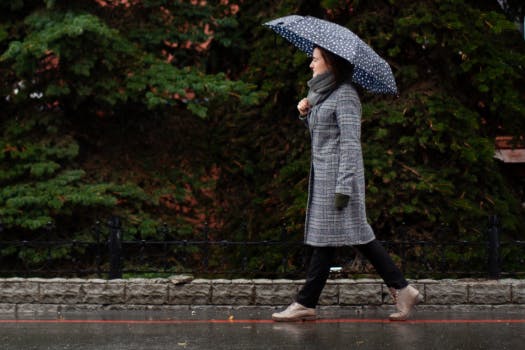What is critical illness cover?
✅ Fact checked by Tembo protection specialist
Critical illness cover can provide you and your family with a tax-free lump sum following the diagnosis of a serious medical condition. In 2022 the average critical illness payout was £66,296, according to the Association of British Insurers’ (ABI).
You can buy critical illness cover as a stand-alone product or add it to another insurance policy, such as life insurance. But how much critical illness cover do you need and what’s covered? Keep reading to find out.
What is critical illness cover?
Critical illness cover is a type of insurance policy which pays out when you’re diagnosed with a serious illness covered by your insurer. Unlike income protection insurance, critical illness cover can pay out even if you keep working and earning an income. That’s because instead of replacing a portion of your income, critical illness cover offers a single lump sum payment.
So in theory, you could continue working and get a payout worth thousands of pounds. A critical illness payout could help you pay your rent or mortgage, household bills, or childcare costs, or help you pay for expenses associated with your illness such as medicines, transport costs or modifications to your home. While some people use critical illness cover to maintain their standard of living if they’re unable to work.
What does critical illness cover?
There are certain illnesses that every critical illness policy must cover such as cancer, heart attacks and strokes, but the severity of these conditions may need to meet specific criteria. For example, less advanced states of cancer might not be covered. The ABI has created a Minimum Standards guide which lays out which conditions must be covered and which conditions must be met. Some insurance providers cover hundreds of different critical illnesses, while others include a more limited selection.
When an insurance provider does cover a particular illness, they might have certain criteria that must be met. For example, they might pay out if you’re diagnosed with a specific type of cancer, but only if it’s reached a particular stage.
What is classed as a critical illness?
There are many different types of critical illness, but the exact number of illnesses covered by a policy depends on the insurance provider.
Most critical illness policies will cover the following:
- Cancer
- Heart Attack
- Coronary Artery Disease
- Stroke
- Encephalitis
- Kidney Failure
- Head Trauma
- Multiple Sclerosis
- Medullary Cystic Disease
- Parkinson’s Disease
- Brain Surgery
- Alzheimer’s Disease
- Coronary Artery Bypass Surgery
- Brain Tumour (Benign)
- Lung Disease (end-stage)
- Paralysis (limbs)
- Surgery of the Aorta
- Muscular Dystrophy
- Terminal Illness
- Third Degree Burns
- Loss of Independence
- HIV
- Major Organ Transplant
- Cardiomyopathy
- Primary Pulmonary Arterial Hypertension
- Loss of Speech
- Severe Coronary Artery Disease
- Chronic Aplastic Anaemia
- Heart Valve Surgery
- Blindness (Permanent)
- Angioplasty
- Bacterial Meningitis
- Coma
- Liver Failure (end-stage)
- Hepatitis (Fulminant Viral)
- Deafness (Permanent)
What cancers are covered by critical illness insurance?
Critical illness insurance policies tend to cover a number of different types of cancer, ranging from stage one to stage four.
Here are just a few types of cancer that are often covered by critical illness insurance:
- Bowel cancer
- Breast cancer
- Lung cancer
- Benign brain tumour
- Cancer of the liver
We can help you find the right cover for you
Our award-winning advisers compare policies from top providers to find the perfect cover for you. Free advice, no obligations.
How much is critical illness cover?
Critical illness cover can cost as little as a few pounds a month but the more cover you need, the more expensive your premiums will be.
Here are just a few other factors that can affect the cost of your cover:
Lifestyle
Your overall lifestyle can influence the cost of critical illness cover. If you’re a smoker or heavy drinker, for example, you may pay more than a teetotal non-smoker.
Insurance providers usually take your job into account too. If you have a very sedentary job, you may have higher costs than someone who is very active. Thankfully, the difference in cost might only be minimal, particularly if you’re young and you’re otherwise healthy.
Some insurance companies might even agree to reassess your policy after a set period of time, offering to reduce the cost of your cover if you become more active, stop smoking or make other changes to your lifestyle.
For some, taking out critical illness cover or buying a life insurance policy can be an incentive to improve their health and wellbeing. Not only can better health result in lower premiums, some companies offer discounted gym memberships, fitness trackers and recipe boxes. Vitality’s Rewards programme, for example, can help you get in shape and save money.
Pre-existing medical conditions
If you have any pre-existing medical conditions, this could increase the cost of your critical illness cover. Some medical conditions only have a minor impact on your monthly premiums though, so don’t let your health discourage you from weighing up your options. It’s always best to seek expert advice when deciding on the best policy for your situation
Additional benefits
Some insurance providers let you add additional benefits to your policy, but this will usually increase the cost of your insurance.
Aviva, for example, offers a Global Treatment ‘add-on’ which would give you access to international facilities, doctors and treatments all over the world. If you were diagnosed with a rare illness that could only be treated abroad, this type of cover could potentially be lifesaving. It costs just a few pounds a month to add this benefit onto your policy.
With hundreds of insurance providers across the market and thousands of policies to choose from, it’s a good idea to compare a wide selection before buying insurance. Some policies are only available through a broker like us, so it’s worth getting advice from an insurance specialist.
If you’re worried that your age, lifestyle or preexisting health conditions could affect the affordability of your insurance, let us help. Here at Tembo, our team of insurance experts will do everything they can to find the right critical illness cover for you.
How much critical illness cover do I need?
The amount of critical illness cover you need depends on your lifestyle, job, family, and financial situation.
Here are a few things to think about when working out how much critical illness cover you need:
1. How much money do you need to maintain your lifestyle?
Consider how much money you need to stay on top of your bills, debts and other financial commitments.
If you have a mortgage, you might want to take your outstanding balance into account when choosing a level of cover. A critical illness payout could potentially help you become mortgage-free, but you’ll need to work out whether the monthly cost is worth it.
Don’t forget to consider non-essential expenses too, particularly those that contribute to your overall happiness and wellbeing. If you’re diagnosed with a serious illness, you might want to treat yourself to takeaways, beauty treatments, and time with loved ones, without counting the pennies.
2. How might a critical illness affect your income and outgoings?
A critical illness could have an impact on the amount you earn and the amount you spend. For example, you might need to reduce your hours or stop working completely. Even if you can do your job, that doesn’t mean you’ll want to. You might want to take time off for rest and recovery or switch careers to something more fulfilling or less demanding. Making such drastic changes could impact your income.
Meanwhile, your expenses might increase as a result of your condition. If you need to attend regular medical appointments, for example, you might have to spend more on petrol or public transport. If you’re unable to take care of yourself or your family like you could before, you might need to hire a cleaner, subscribe to a healthy meal prep service, or pay for additional childcare. With the right level of cover, your critical illness payout can offer financial protection when you need it most.
Some people combine multiple types of protection so they’re covered from a wider number of possibilities. For example, purchasing income protection as well as critical illness cover can give you extra peace of mind in the event of a serious illness or injury. If you’re diagnosed with a critical illness in future and you’re unable to work, you may be able to make a claim on both policies. You’ll receive a monthly income from the income protection policy and a one-off lump sum from the critical illness cover.
If your condition isn’t covered by your critical illness policy, your income protection insurance might replace a portion of your income while you’re out of work. If you’re still able to work, you won’t be eligible for income protection payments, but you might be able to claim on your critical illness policy instead.
How do I pick the right cover for me?
Choosing the right insurance can be overwhelming. Get a quote from our team of protection specialists today and we’ll compare hundreds of income protection, critical illness, mortgage protection and life insurance policies until we find the right cover for you.






